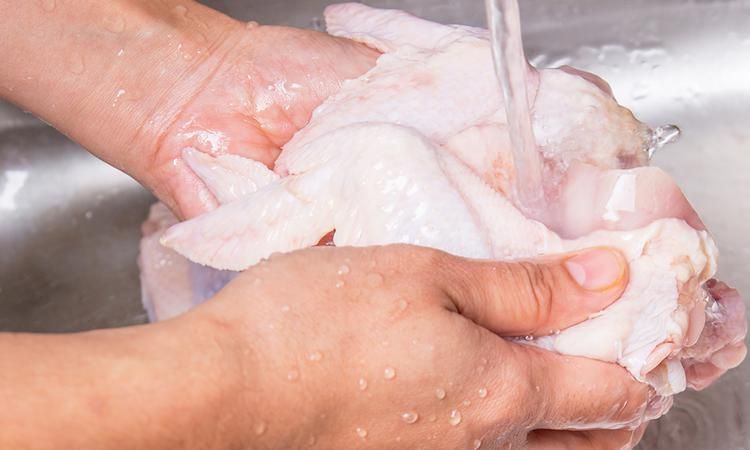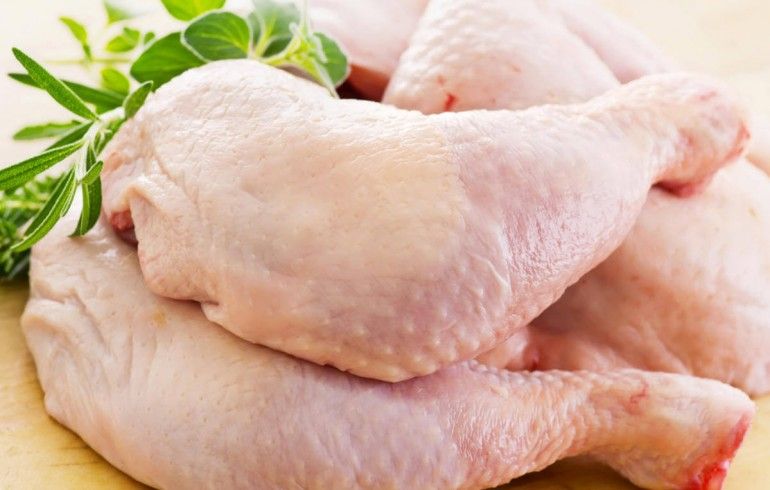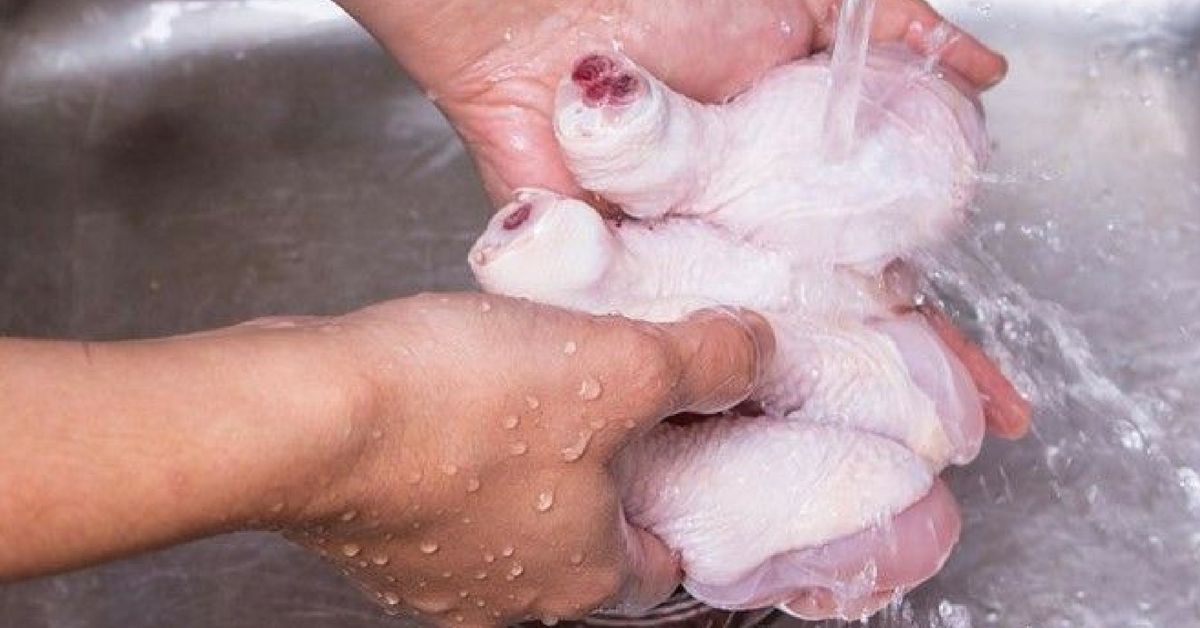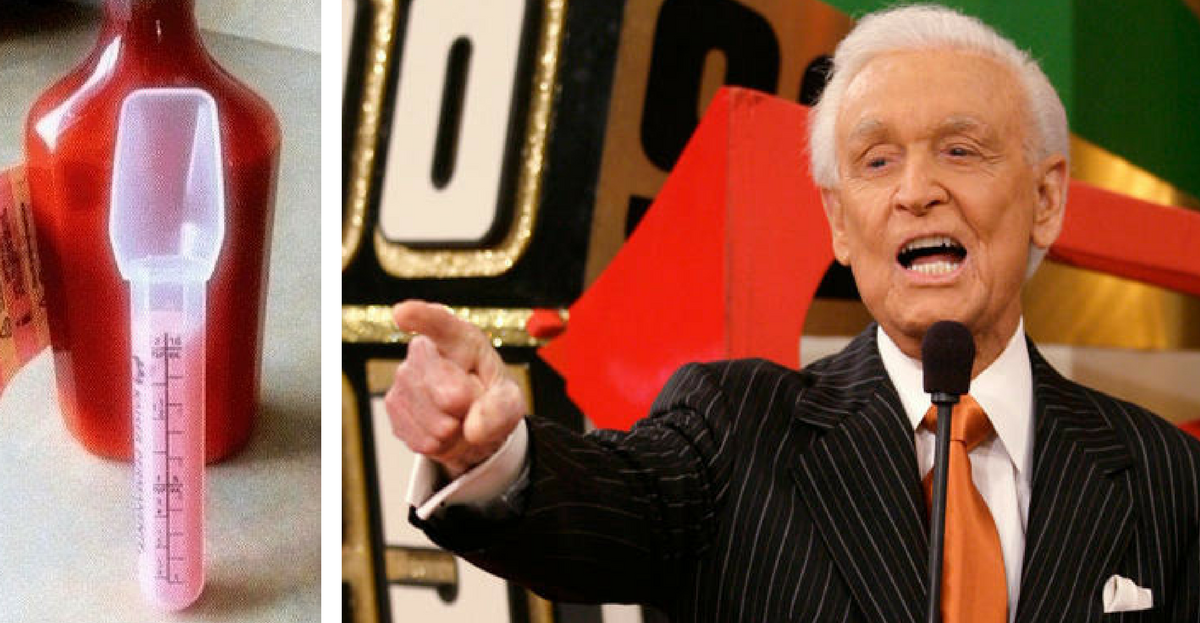For many home cooks, rinsing raw chicken and patting it dry is just a normal part of the meal preparation process.
Many recipes call for this step, the 1951 edition of the Joy of Cooking advised washing chicken before roasting it, Julia Child did it on her TV show, and Martha Stewart recommends it, so it's a habit many of us have become accustomed to.
In fact, an FDA poll revealed that 67 percent of Americans wash meat before cooking.

For decades, people have been divided over the debate of whether or not chicken should be washed before cooking, and now, the experts have finally spoken to put an end to the discussion.
If you're among the majority of the population who does rinse chicken, you should never ever do it again.
Public health officials, germ experts, as well as many professional chefs are urging people to stop because you're actually causing more harm than good.

What many people don't realize is that rinsing raw meat does not get rid of the bacteria, it actually increases the chances of spreading dangerous pathogens that's found on the meat.
"This practice is not recommended by food safety experts since washing will not destroy pathogens and may increase the risk of contaminating other foods and surfaces," says the U.S. Food and Drug Administration (FDA).
Using hot water, vinegar or chlorine are also not effective solutions, so don't even bother. Brining poultry is fine as long as it's done safely and followed by thorough cooking.
"It's really only been since the "˜90s or the 2000s that public health officials started saying, "˜Oh wait, this is actually more dangerous than we thought.' So now you just have to de-program people," Keith Warriner, a food science professor at the University of Guelph told CTVNews.ca.

The safest way to ensure you're not causing any cross-contamination is by cooking poultry meat to the recommended temperatures. The high heat will kill the harmful bacteria that causes food-borne illnesses like Salmonella and Campylobacter.
"Just 500 cells of campylobacter will give you profuse diarrhea for a week," Warriner warns about the infection that affects about 1.3 Americans every year.
As for Salmonella, it causes illness in about 1.2 million Americans annually. 23,000 of the cases result in hospitalizations, and 450 end in death, according to the Centers of Disease Control and Prevention (CDC).
Despite this warning, there are still many who continue this practice.
"You're not supposed to because of cross contamination, but I still do it sometimes," wrote one Twitter user.
You're not supposed to because of cross contamination, but I still do it sometimes
— Antoinette Wood (@NettieWrites) July 27, 2017
"I rinse my chicken and will always rinse - too much blood, feathers, and other detritus not to, read another tweet. "But afterwards I scrub my sink and counters with soap and hot water."
I rinse my chicken and will always rinse - too much blood, feathers, and other detritus not to. But afterwards I scrub my sink and counters with soap and hot water.
— Annie (@annieb346) June 16, 2018
Looks like people will need a lot of "de-programming" to stop washing poultry meat.
Do you wash chicken before cooking? Let us know in the comments.

